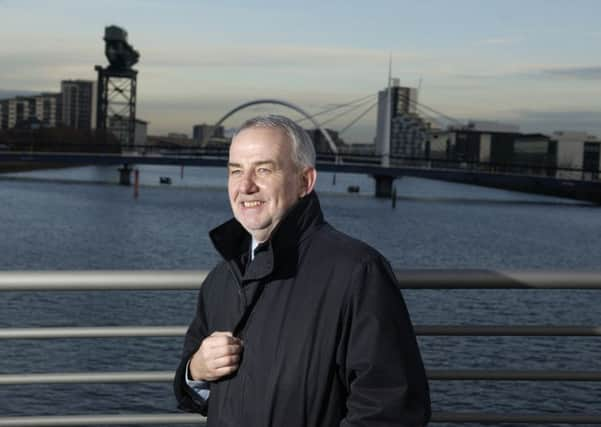Interview: David Watt, Head of IOD Scotland


But it’s more hope than expectation, as the head of the Institute of Directors (IoD) in Scotland has been frustrated by the political deliberation in the run-up to next month’s general election.
“I am deeply disappointed at the level of economic debate,” Watt says. “There is only an expenditure debate – what areas will get the most public resources – and no real talk coming from any of the political parties about how we can grow those resources by stimulating and expanding the economy.”
Advertisement
Hide AdAdvertisement
Hide AdThe main problem, he says, is “this obsession with the constitution”. From the seven main parties on 2 April to last week’s Scottish leaders’ debate, discussions have been overshadowed by questions on independence, devolution and membership in Europe.
“It is taking up too much space – it excludes everything else,” says Watt. “We had a referendum last year, and we made a decision, whether you like that decision or not, so let’s park it and move on. We are not now having a referendum – we are having an election.”
At first glance, his comments seem borderline anti-political, but Watt has been keenly interested in government and current affairs since his boyhood days in Kilmarnock.
Now approaching his 12th anniversary as director of IoD Scotland, Watt has through the years pushed an agenda to wean Scotland’s economy off what the group believes is an over-reliance on government spending and employment. It’s a theme he will certainly return to in the autumn as IoD Scotland gears up for next year’s Holyrood elections.
In the meantime, he adds his voice to that of the wider IoD across the UK, which has been shedding some of its characteristic moderation under director-general Simon Walker.
No doubt that the IoD is still unabashedly pro-business – in recent weeks, it has criticised the government’s so-called Google tax while also rejecting Labour proposals to limit zero-hour contracts. But the group is also getting more bullish on the excesses of capitalism and bad companies, having waded in several times on the subject of exorbitant executive bonuses.
Watt says there are precious few issues where IoD Scotland takes a different stance than that of its parent group, with HS2 a notable exception that proves the rule. While many business directors in England and Wales remain unconvinced of the economic benefits of a high-speed rail link, IoD Scotland’s members are much more in favour of the project.
For the most part, though, what’s good for business in the UK is also good for business in Scotland.
Advertisement
Hide AdAdvertisement
Hide Ad“You could argue these elections are disproportionally more important to business than to the individual in the street,” Watt says. “This is a United Kingdom election, and in terms of the macro economy, the UK has a massive impact on Scotland.”
Though not a formal expert on the interplay of politics and economics, Watt definitely qualifies as a studied amateur. As a child he tuned into talk radio rather than music, which he concedes is “a bit unusual”.
He was also heavily involved in sport, and went on to qualify as a physical education teacher at Jordanhill College in Glasgow before returning to his home town of Kilmarnock as a PE instructor. The offer of a post within Fife Council’s sport and leisure then took him north, where he still lives, but he finally left the public sector in 1993 to set up his own consultancy, Organising Leisure.
It was during this nine-year stint of running a sports management and administration business that Watt first came into contact with the IoD. He joined the group’s local Fife and Tayside committee as an unpaid member of the institute’s voluntary network, which includes roughly 34,000 individual business leaders spread across the UK.
In addition to his current commute from Fife to the IoD’s offices in Edinburgh, Watt travels extensively throughout the country, speaking to as many of the Scottish arm’s 1,750 members as possible. The vast majority represent the medium-sized businesses that Watt believes can drive the economy forward if given the right circumstances.
“Bluntly, they are the companies that Scotland will rely on in the future,” he says. “We don’t have that many major institutions in Scotland, so the expansion and the growth of these medium-sized companies will be vital to Scotland in the future.”
To prosper, they need among other things a system of taxation that encourages expansion, good transportation and communication networks, and a more relaxed policy on bringing in workers from abroad. Watt points out that all of these areas are ultimately controlled by Westminster, but at the same time they are all getting squeezed out of the political discussion by the constitutional debate.
“We need to park that until next year. This year’s debate is about things like the economy, international policy and defence – issues like that.”